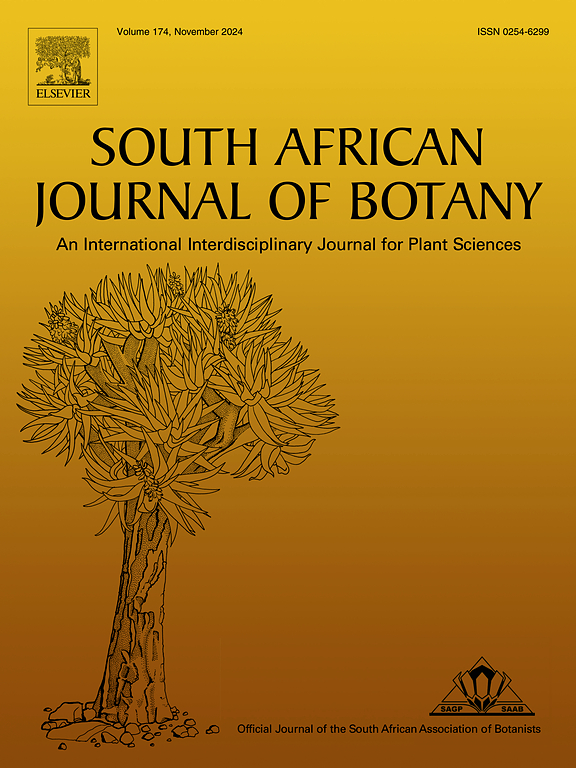虎杖精油在人类白血病 HL-60 细胞中发挥 caspase-3 介导的细胞凋亡作用
IF 2.7
3区 生物学
Q2 PLANT SCIENCES
引用次数: 0
摘要
本研究讨论了欧加马全株精油(EOV)对人类早幼粒细胞白血病 HL-60 细胞的凋亡潜能。本研究使用了多种参数,包括核结合荧光探针、电子显微镜、DNA 梯度分析和附件素 V-FITC/PI 亲和力测定,以了解 EOV 在诱导人 HL-60 癌细胞凋亡中的作用。对 BrdU 的掺入进行定量,以确定 DNA 的损伤程度。进一步确定,EOV 对 DNA 细胞周期和线粒体有影响,具体表现为在 DNA 细胞周期分析中 G0 峰明显细分,线粒体膜电位降低。细胞色素-c水平升高与这些事件有关。还分析了 Bcl-2 的耗竭和 ROS 的增加。两种启动式 caspase(即 caspase-9 和 -8)都激活了 caspase-3,最终导致细胞凋亡。这些效应表明,EOV 具有诱导 HL-60 细胞凋亡的潜力,有望成为进一步抗癌研究的候选药物。本文章由计算机程序翻译,如有差异,请以英文原文为准。
Essential oil from Ocimum viride exerts caspase-3 interceded apoptosis in human leukemia HL-60 cells
The present study discusses the apoptotic potential of essential oil from whole plant of Ocimum viride (EOV) against human promyelocytic leukemia HL-60 cells. IC50 value of EOV on HL-60 cells was 0.087, 0.0503, and 0.034 µl/ml respectively at 6, 12, and 24 h. Several parameters were used to access the role of EOV in inducing apoptosis in human HL-60 cancer cells, including nuclear binding fluoroprobes, electron micrographs, DNA laddering, and annexin V-FITC/PI affinity assay. Quantification of BrdU incorporation was done to determine the degree of DNA damage. It was further determined that EOV has an effect on the DNA cell cycle and mitochondria, which was observed in the form of a prominent subdivision of G0 peaks in the analysis of the DNA cell cycle, as well as a reduction in the mitochondrial membrane potential. A higher level of cytosolic cytochrome-c was associated with these events. Bcl-2 depletion and increase in ROS were also analysed. Both initiator caspases namely caspase-9 and -8 activated caspase-3 which eventually leads to apoptosis. These effects revealed that EOV has apoptosis inducing potential towards HL-60 cells and can be a promising candidate for further anticancer studies.
求助全文
通过发布文献求助,成功后即可免费获取论文全文。
去求助
来源期刊

South African Journal of Botany
生物-植物科学
CiteScore
5.20
自引率
9.70%
发文量
709
审稿时长
61 days
期刊介绍:
The South African Journal of Botany publishes original papers that deal with the classification, biodiversity, morphology, physiology, molecular biology, ecology, biotechnology, ethnobotany and other botanically related aspects of species that are of importance to southern Africa. Manuscripts dealing with significant new findings on other species of the world and general botanical principles will also be considered and are encouraged.
 求助内容:
求助内容: 应助结果提醒方式:
应助结果提醒方式:


